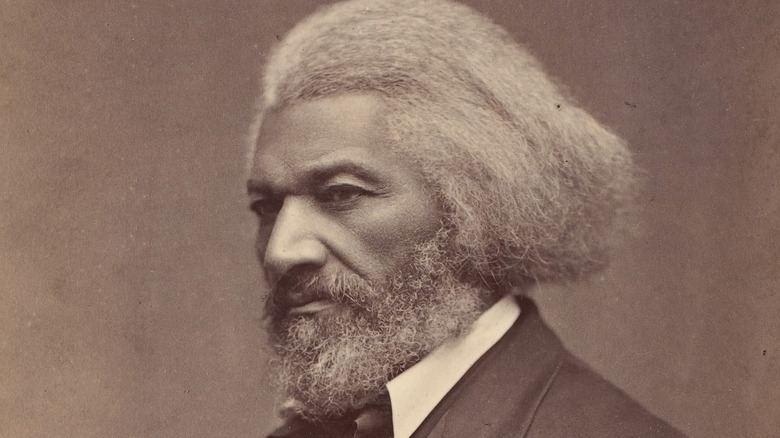How Historically Accurate Is The Movie Lincoln?
While Steven Spielberg is best known for thriller and family-friendly adventure films, he has stepped into very serious subjects as well. In 1993, "Schindler's List" provided audiences a grim picture of the realities that came with internment and occupation by Nazi Germany. Spielberg once again chose to pay homage to such material with 2012's "Lincoln," which provides an overview of Abraham Lincoln's final year as president and the policy he enacted in it. Thematically the film is somewhat dramatized, but a great deal of research went into not only political history and set design, but how Lincoln himself was portrayed.
That is where Daniel Day-Lewis, the actor selected to play the 16th president, came in after Spielberg pursued him for the role over nearly a decade (via IndieWire). Lewis has been widely recognized as an extraordinarily dedicated method actor, reported as often refusing to break character even off set. As a result, Lewis made a concentrated effort to research accounts of his mannerisms, speech patterns, and general disposition in order to humanize Lincoln rather than play a purely romanticized caricature (via The New York Times).
The film did justice to Lincoln, but could have done more
There are areas of the film where many historians feel there could have been much improvement, including author Ronald White in an interview with NPR. Specifically, the film's relative lack of screen time for historical African American figures. They are given quiet roles in the film at a time when abolitionist leaders such as Frederick Douglass (pictured above) were very outspoken on the plight of those still enslaved. In fact, Douglass does not even appear in the film (via The Washington Post).
Meanwhile, according to White, Douglass' son Charles was historically (but without acknowledgement in the film) among the African Americans who are shown gathering as the 13th amendment is being voted on. Other aspects of the film, again in keeping with the dramatized nature of the film, include exaggerations of how Lincoln managed to secure votes on the amendment, the length of his anti-slavery stance, and the likelihood slavery might remain legal after the war (via Daily History). Despite this, many critics concede that the film does generally give faithful, if not totally accurate, portrayals of the historical figures shown on screen.

